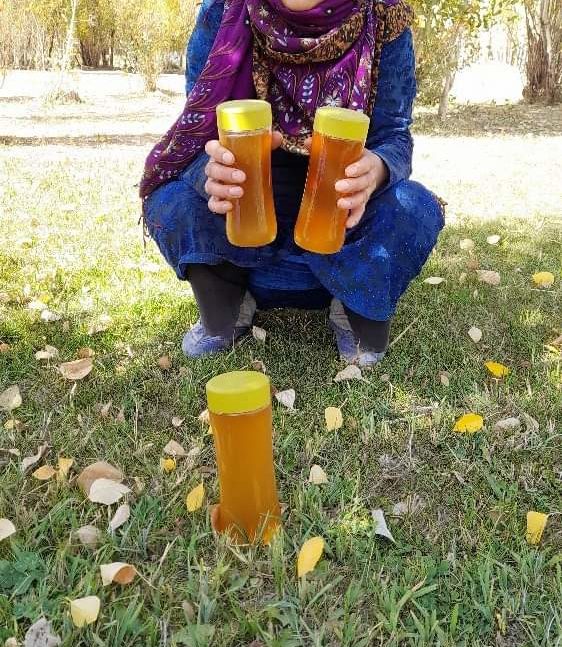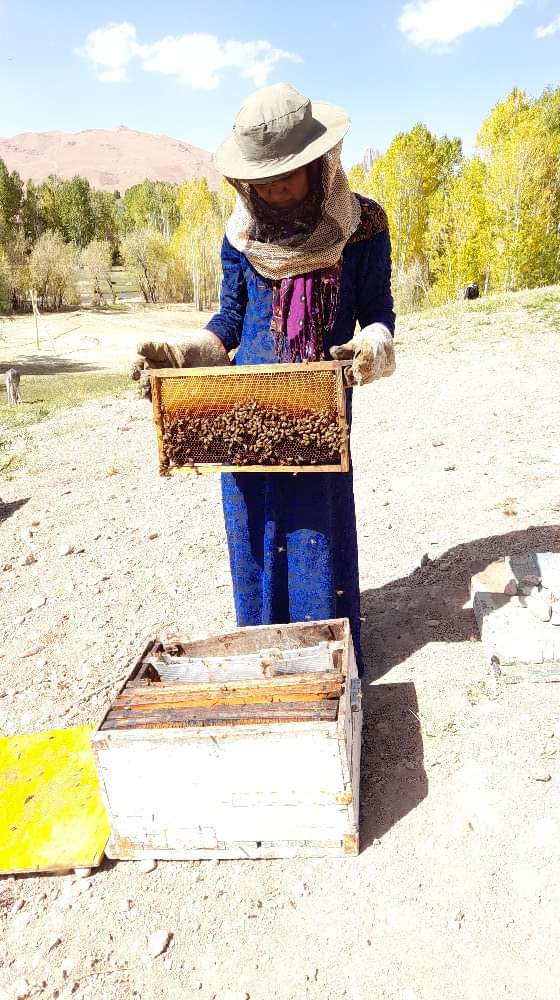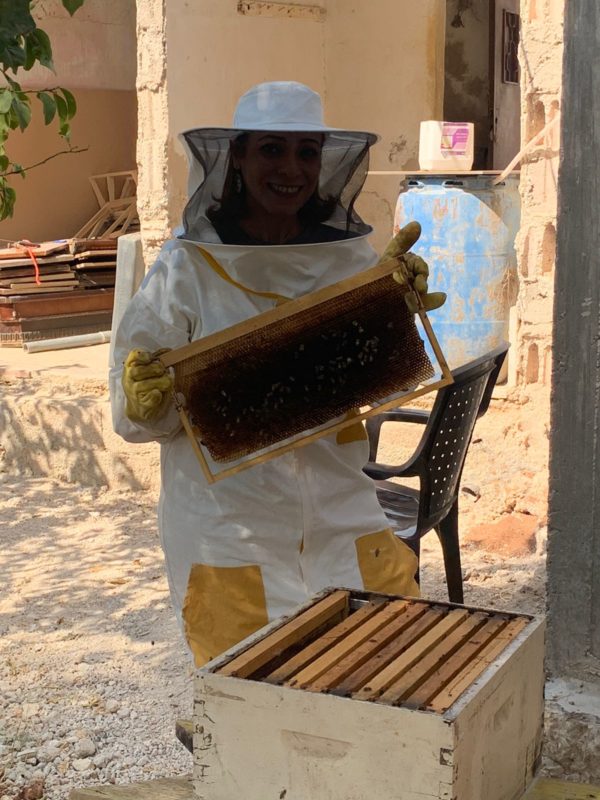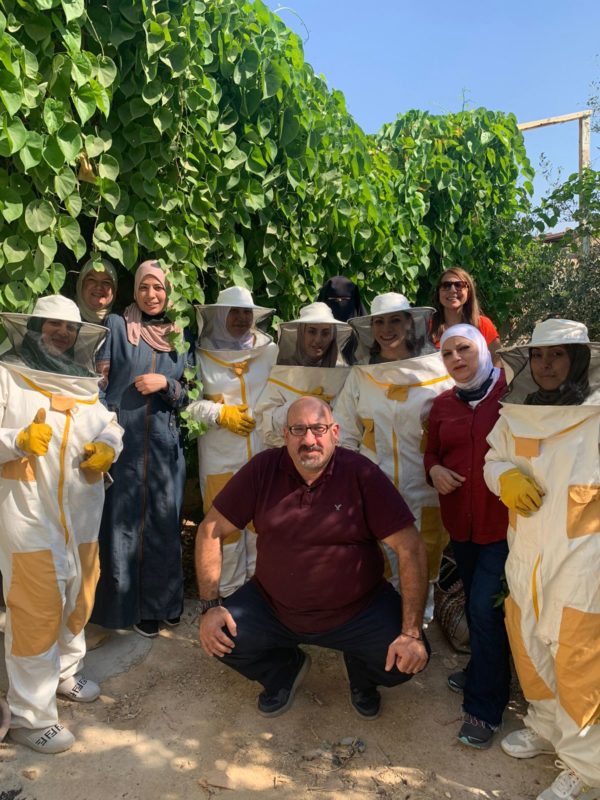Why Our Beekeepers Are Women
The piloting of a program for female beekeepers in Afghanistan began in June of 2020. Our purpose is to identify non-formally educated rural women to train. With local partner Shuhada Organization, our Bamyan Province beekeeping program began. Practical hands-on training involves the cooperation of the community, families and partners. This ensures that every aspect operates successfully. Five women of Bamyan Province were selected for training in this inaugural program.
As a secondary income generator, beekeeping is minimally demanding on labour and time. That is why we have trained rural women to become beekeepers. They produce sustainably harvested, local natural honey. Women are usually at home throughout the day as they are responsible for much of the unpaid labour in households. Tasks such as the raising of families, cleaning, cooking and collecting water lie with women of the house. Thus, we support them through lucrative employment while not distracting them from their regular daily tasks.
Barefoot College International supports the beekeepers in multiple ways. With the aid of local partners, mentoring and support are provided by a local bee expert for 2 years. Each woman is provided with beehives and any required equipment. Mentorship also includes entrepreneurial training and marketing capacity. Once harvesting has successfully begun, women are also skilled at the selling of honey. They’re also adept at saving and managing the funds they receive.
 A rural beekeeper from Banyan Province, Afghanistan displays some of her honey harvest
A rural beekeeper from Banyan Province, Afghanistan displays some of her honey harvestIn multiple countries, our beekeeper women have exemplified the success of our initiatives, focused on enabling women to generate more profits. In some cases, women beekeepers have more than doubled their annual income. When interviewed, our beneficiaries have stated that they are happy and grateful for the program. They have confirmed that it enriches their lives.
The Situation for Afghani Women
In recent months, women in Afghanistan have become victims of increased oppression, violence and loss of job security. To better protect and support women and girls, providing access to education is essential. This gains them better work opportunities, which helps to stabilize local economies and communities.
According to The World Bank, 21.76% of Afghani women are in the labour force- one of the lowest percentiles in the world. Boosting economic stability in Afghanistan depends on women’s workforce inclusion. Women beekeepers are a viable solution to this skewed demographic.
 Women beekeepers harvested an average of 96kg of honey in a year
Women beekeepers harvested an average of 96kg of honey in a yearThe Success Story of our Beekeepers
In-field monitoring of our beekeeping program began this July. The five selected women harvested an average of 96kg of natural honey. Each kilo of honey was sold for the equivalent of USD $6, thereby garnering them an extra USD $576 of annual income. For most of the women, this was more than double their usual annual income, at a 114% increase.
Impressively, many of the women used the extra income to reinvest in 1-6 more hives for themselves. This enables them to harvest an average of 132 kg so far. Their income thus continues to increase, with minimal added time constraints. This September is the expected time for their next harvest, at which point we expect them to have collected even more honey.
At a time where the local economy in Afghanistan has been suffering, the women remain motivated and confident. They have continued selling their honey successfully despite local economic instability. Even in the isolated region where they live, they have been selling their honey without issue.
 Beekeepers from Jordan help us to launch our latest program
Beekeepers from Jordan help us to launch our latest programExpansion of our Beekeeping Program: Jordan
We are confident that beekeeping can be scaled up in countries across the Middle East. Partnered with JOFOE (Jordanian Friends of Environment), a Jordanian organization, we launched our beekeeping program for women in Jordan. In July 2021, local authority allowance and lucrative funding initiated the full launch. 6 rural women from the Jordan Valley received equipment and 6 beehives each.
News from JOFOE has confirmed that the program is going very well, with the women enthusiastically approaching their new livelihood. Their first honey harvest will take place between January and March of 2022. Following the harvest, they’re expected to begin generating income much like our trainees from Afghanistan.
Our future goal is to continue expanding the program so that women beekeepers become a common and integral demographic of the Global South. You can support our beekeeping program and the sustainable harvesting of natural, local honey by visiting our donate page.
 Our beekeeping team in Jordan
Our beekeeping team in Jordan

